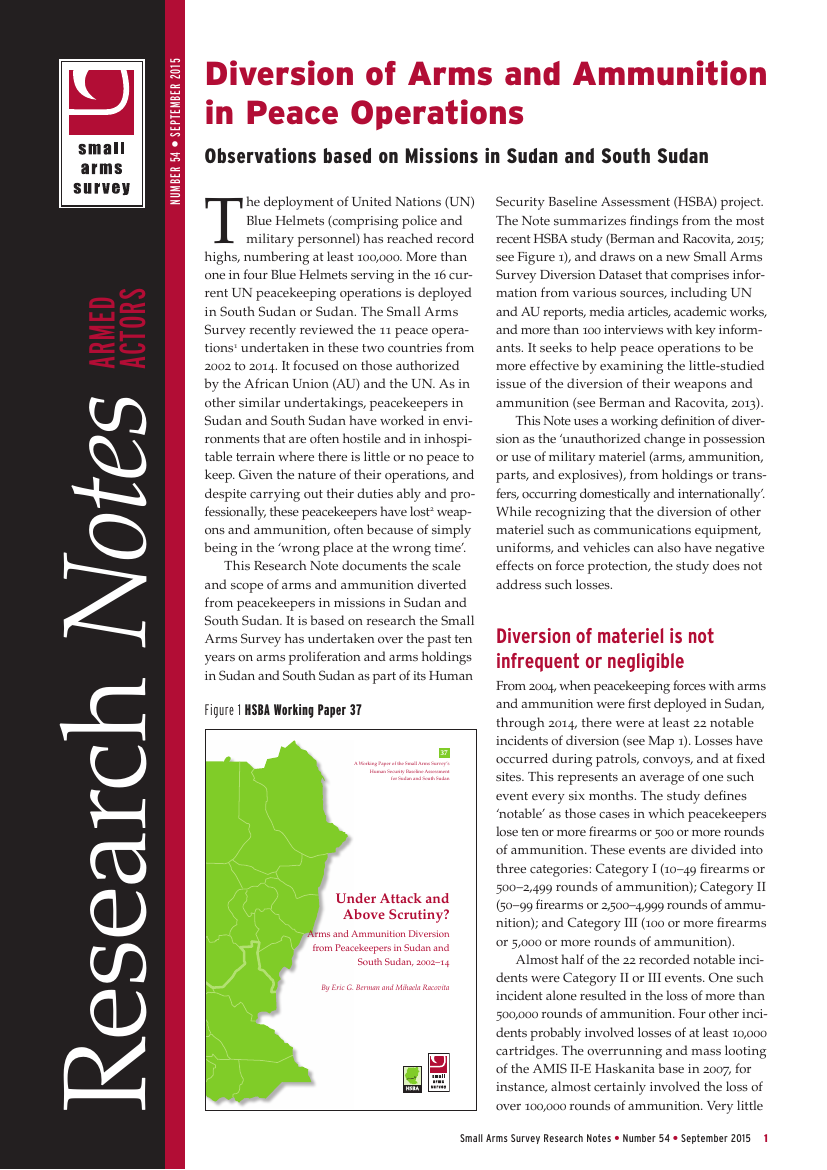
Diversion of Arms and Ammunition in Peace Operations: Observations Based on Missions in Sudan and South Sudan (Research Note 54)
More than 100,000 police and military personnel are currently deployed as United Nations peacekeepers (known as Blue Helmets) in 16 UN peacekeeping operations, with one in four of these peacekeepers deployed in South Sudan or Sudan. Between 2004 and 2014 there were at least 22 notable incidents of diversion or loss of weapons and ammunition during peacekeeping operations in these countries. These incidents, each of which involved the loss more than 10 weapons or more than 500 rounds of ammunition, have occurred during patrols, during attacks on convoys, and on fixed sites.
The Small Arms Survey Research Note Diversion of Arms and Ammunition in Peace Operations: Observations based on Missions in Sudan and South Sudan documents the scale and scope of arms and ammunition diverted from peacekeepers in missions in Sudan and South Sudan. The Research Note is based on the findings of Under Attack and Above Scrutiny? Arms and Ammunition Diversion from Peacekeepers in Sudan and South Sudan, 2002–14, a Working Paper from the HSBA in Sudan and South Sudan project.
In the notable incidents documented (map in French), a total of more than 500 weapons and over 750,000 rounds of ammunition were seized. These items include pistols, assault rifles, machine guns, grenade launchers, anti-tank weapons, and mortars, as well as the ammunition and munitions for these weapons systems. One such incident alone resulted in the loss of more than 500,000 rounds of ammunition. Four others probably involved losses of at least 10,000 cartridges. Very little equipment lost during these attacks has been recovered.
Accurate information is difficult to obtain, as there is imperfect reporting and recordkeeping, and a noticeable reluctance to share bad news. Additionally, when weapons are recovered by peacekeepers in cordon and search operations, engagements with hostile forces, or raids on arms caches, there is rarely any systematic recordkeeping. Some items are returned to the armed group from which they were taken, some are redistributed to local authorities, while others may be destroyed or retained for safekeeping. The diversion of such weapons often goes unreported.
The study suggests that, while weapons obtained from peacekeepers represent a relatively small part of those held by armed groups, further diversions could be reduced by improved recordkeeping, reporting, and oversight.
Also available in FRENCH and SPANISH
Have your say about Small Arms Survey publications and products: take 5 minutes to fill out our questionnaire.